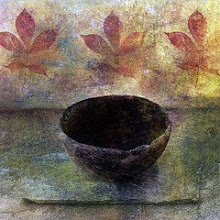 The Buddha taught that there is no soul, no essential and permanent core to a living being. Instead, that which we call a "living being", human or other, can be seen to be but a temporary coming together of many activities and parts.
The Buddha taught that there is no soul, no essential and permanent core to a living being. Instead, that which we call a "living being", human or other, can be seen to be but a temporary coming together of many activities and parts.When complete it is called a "living being", but after the parts separate and the activities cease it is not called a 'living being' anymore.
Like an advanced computer assembled of many parts and activities, only when it is complete and performs coherent tasks is it called a "computer", but after the parts are disconnected and the activities cease it is no longer called a "computer". No essential permanent core can be found which we can truly call "the computer", just so, no essential permanent core can be found which we can call "the soul".
Yet Rebirth still occurs without a soul. Consider this simile: on a Buddhist shrine one candle, burnt low, is about to expire. A monk takes a new candle and lights it from the old. The old candle dies, the new candle burns bright. What went across from the old candle to the new? There was a causal link but no thing went across! In the same way, there was a causal link between your previous life and your present life, but no soul has gone across.
Indeed, the illusion of a soul is said by the Buddha to be the root cause of all human suffering. The illusion of 'soul' manifests as the "Ego". The natural unstoppable function of the Ego is to control. Big Egos want to control the world, average Egos try to control their immediate surroundings of home, family and workplace, and almost all Egos strive to control what they take to be their own body and mind. Such control manifests as desire and aversion, it results in a lack of both inner peace and outer harmony.
It is this Ego that seeks to acquire possessions, manipulate others and exploit the environment. Its aim is its own happiness but it invariably produces suffering.
It craves for satisfaction but it experiences discontent.
Such deep-rooted suffering cannot come to an end until one sees, through deep and powerful meditation, that the idea "me and mine" is no more than a mirage.


